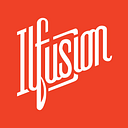4 Google Ad Alternatives to Expand Your Reach
Google Ads has been the digital advertising platform of choice for many brands. However, if you’re a beginner, there may be several reasons why it’s not the best option for you. You may also want to consider other ad platforms as a complement to Google Ads to expand your reach.
But first, let’s discuss what Google Ads is and how it differs from Google AdSense.
Google Ads vs. Google AdSense
Google Ads is a pay-per-click (PPC) ad platform that allows you to advertise your products and/or services across their network of publisher websites and on Google search results.
On the other hand, with Google AdSense, you can monetize your website and blog by the ads that Google automatically generates on your digital property. You earn revenue through Google AdSense for each number of views or engagement with the ad.
As mentioned, Google Ads has been dominating the digital advertising industry for years. However, it’s for this very reason why it may not be always the best choice:
- More expensive: With so many competing bidders on the Google Ads network, the cost-per-click (CPC) may be relatively higher compared to other PPC ad platforms. For illustration purposes, the average CPC in Google AdWords is $2.69 for search, while for Microsoft (Bing), it’s only $1.54.
- Fierce competition: As a related point, with the saturated network, you may lose the chance to fully maximize your reach, especially when you’re just starting out. Additionally, your target audience may frequent other platforms, and sticking with just one platform for your PPC campaigns will certainly limit your opportunities.
- Not beginner-friendly: Their dashboard is quite complex to use for new users. Several reviews also state that customer support isn’t as good as they would like.
4 Google AdSense Alternatives to Consider
1. Microsoft Ads (Bing Ads)
Formerly called Bing Ads, Microsoft Ads is the second most recommended ad platform. With its recent integration of LinkedIn profile targeting, Microsoft Ads is poised to be a strong competitor to Google Ads from a functionality standpoint, though it’s worth noting that there are almost 13 times more users accessing Google than Bing.
Microsoft Ads Benefits:
- Lower CPCs, as we previously mentioned
- Lower competition
- Easy import from Google Ads, which also makes multi-platfrorm management easier
- More targeting options with LinkedIn Ads integration, which is also helpful for B2B brands
- Ideal for businesses that cater to older/more traditional audiences
2. Amazon Advertising
If you’re in the e-commerce industry or use Google Shopping Ads, Amazon Advertising is a good alternative. It’s best catered to brands who sell tangible goods, as well as those who already use Amazon to sell.
Amazon Advertising Benefits:
- Lower CPC than Google Shopping Ads
- Support for audio and video ads
- If you’re an existing user of their platform, your seller rating increases if you use Amazon Advertising
3. Facebook and Instagram Ads
Advertising through Facebook and Instagram allows you to tap both platforms in one go; that is, ad campaigns that run on Facebook can also be run on Instagram, and vice versa. However, you can also run separate ad campaigns on both platforms.
Facebook Ads and Instagram Benefits:
- Both have a huge userbase
- Both have very efficient algorithms that will give help you maximize your reach to the right audiences
- Offers a variety of ad types; ideal for brand storytelling
- Best for businesses catering to younger audiences
4. Quora Ads
Quora is a question-and-answer content platform with a growing userbase. Their advertising program is quite new, but it has been gaining traction for both B2B and B2C businesses. Additionally, advertising on Quora not only gives you the opportunity to reach new audiences but also helps you boost your brand authority.
Quora Ads Benefits:
- A good compliment to Google Ads, as more than half (63%) of Quora’s traffic comes from Google search.
- Low entry point to start advertising; minimum daily budget is only $5
- Has good targeting features, such as contextual targeting (based on the type of question or topic) and behavioral targeting (question history and interests)
- Best for service-oriented businesses and knowledge experts
As we have mentioned before, the other ad platforms we discussed can either be a supplement or a replacement to Google Ads. A good approach, however, is to have a diverse strategy — that is, if budget permits — and see which ad platforms work best for you and your goals.
To learn more about digital marketing, head on to our blog at https://www.ilfusion.com/blog.
